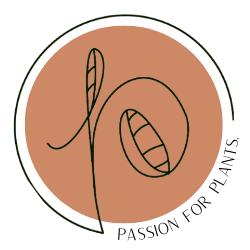A Guide To 10 Unhealthy Foods To Avoid With A Pituitary Tumor
Our bodies carry us through life, and when faced with health challenges, the fuel we choose matters more than ever.
Have you ever wondered how the food we consume can impact our overall well-being?
It's not just about counting calories - but understanding how certain foods can either support or challenge our health.
Today, we’re going to explore the foods to avoid with a pituitary tumor.
So, let's get curious and talk about what goes on our plates when it comes to taking care of our pituitary health.
Foods To Avoid With A Pituitary Gland Tumor
Here is a list of foods not to eat if you are suffering from a pituitary tumor:
High-Sugar Foods
Pituitary tumors can disrupt the normal regulation of hormones, including those that control blood sugar levels.
Consuming high-sugar foods, such as candies, pastries, and sugary beverages, can lead to rapid spikes and crashes in blood sugar levels.
This fluctuation may exacerbate hormonal imbalances associated with pituitary tumors, potentially impacting the body's ability to regulate insulin.
Maintaining stable blood sugar levels is crucial for individuals with pituitary tumors to support overall health and hormonal balance.
2. Processed Foods
Processed foods often undergo extensive refining and contain additives, preservatives, and unhealthy fats.
These components may contribute to inflammation and oxidative stress, factors that can pose challenges for individuals with pituitary tumors.
Inflammation may affect the tumor and surrounding tissues, potentially worsening symptoms.
Choosing whole, unprocessed foods rich in nutrients and devoid of artificial additives is advised to support the body's natural healing processes and minimize potential complications associated with pituitary tumors.
3. High-Sodium Foods
Pituitary tumors can influence the regulation of hormones involved in fluid balance and blood pressure.
Consuming high-sodium foods, such as processed snacks, canned soups, and certain fast foods, can contribute to elevated blood pressure and fluid retention.
For individuals with pituitary tumors, maintaining proper fluid balance is crucial to prevent complications related to increased pressure within the brain.
Therefore, high-sodium foods should be avoided with pituitary tumor to support optimal fluid regulation and overall well-being.
4. Deep-Fried Foods
Deep-fried foods, like french fries and fried chicken, are typically high in unhealthy trans fats and saturated fats.
These fats can contribute to inflammation and may negatively impact cardiovascular health.
Limiting the consumption of deep-fried foods can help reduce the intake of harmful fats, supporting cardiovascular health and minimizing potential complications associated with pituitary tumors.
5. Dairy Products
When it comes to dairy products, some people with pituitary tumors may want to limit their intake.
Dairy products like milk, cheese, and yogurt contain hormones naturally produced by cows, which could affect your body's hormone levels.
Additionally, dairy products can be high in saturated fats, which may not be ideal for someone with a pituitary tumor.
However, consulting with a qualified nutritionist or registered dietitian is essential to determine if limiting dairy is necessary for your specific situation.
6. Red & Processed Meats
Red and processed meats, such as beef, bacon, and sausages, are among the foods to avoid with pituitary gland tumors.
Excessive consumption of these foods has been linked to increased inflammation and may pose risks to cardiovascular health.
Given that pituitary tumors can influence hormonal regulation, maintaining a heart-healthy diet becomes crucial.
Choosing lean protein sources, such as poultry, fish, and plant-based alternatives, can help reduce saturated fat intake.
7. Caffeine
Caffeine is a stimulant that can affect the central nervous system and potentially impact hormone levels.
Managing hormonal balance is essential for pituitary tumor patients, and excessive caffeine intake may interfere with this delicate equilibrium.
Moreover, caffeine can act as a diuretic, potentially affecting fluid balance, which is particularly important for those with pituitary tumors to avoid complications related to increased intracranial pressure.
Moderation in caffeine consumption, including coffee, tea, and energy drinks, is advised to support hormonal stability and overall health.
8. Alcohol
Alcohol is another food to avoid with pituitary tumor as it can have various effects on the body, including potential interactions with medications and an impact on liver function.
Individuals with pituitary tumors may be on medications to manage symptoms or control hormone levels, and alcohol can interfere with the efficacy of these medications.
Furthermore, the liver plays a crucial role in hormone metabolism, and excessive alcohol consumption may strain this organ.
Limiting or avoiding alcohol can help ensure the effectiveness of medications and support liver function.
Final Verdict
In a nutshell, choosing the right foods can make a big difference for those dealing with pituitary tumors.
Keep it simple: remember that adding more fruits and vegetables goes a long way to eating more nutrient dense meals! And if you need some nutrient-rich recipe ideas that taste great and are easy to make, check out my plant-based cookbook here.
What questions do you have about eating for a healthier body and pituitary health? Leave them in the comments!








